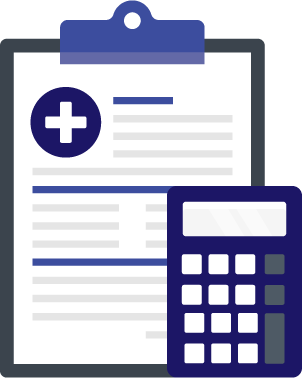
Health Savings Accounts (HSAs) are a powerful financial tool available to people who have qualifying high-deductible health plans. With an HSA you can save money on taxes and reduce your out-of-pocket medical expenses. Before deciding whether to open an HSA, it is important to understand their eligibility requirements, benefits, risks, and uses.
Are You Eligible for an HSA?
To open an HSA, you must be enrolled in a qualifying high-deductible health plan (HDHP). An HDHP generally has a higher deductible than other types of plans and lower monthly premiums. In addition, you must not be enrolled in Medicare or TRICARE, you must be under age 65, and you cannot be claimed as a dependent on someone else’s tax return.
The Benefits and Risks of an HSA
HSAs offer several key benefits to their owners. One of the key benefits of HSAs is the triple tax savings they offer. Contributions to HSAs are made with pre-tax dollars, meaning that you save on your current year’s taxes. The money in your HSA grows tax-free, and you can withdraw it tax-free to pay for qualifying medical expenses. This can add up to a lot of savings over time!
Another important benefit of HSAs is that the funds in them can be rolled over from year to year. Unlike with other types of health insurance plans, there is no “use it or lose it” rule. You can keep your HSA funds if you don’t use them all in a given year, if you switch jobs, or if you change healthcare plans. In addition, you can save your HSA funds and use them to pay for medical expenses even after you retire. All these benefits make HSAs a powerful financial tool for people with qualifying high-deductible health plans.
Although HSAs have many benefits, there are some risks to consider. For example, if you withdraw money from an HSA for non-medical expenses before age 65, the penalty can be up to 20% of the costs. On or after age 65, or upon death, non-qualified withdrawals are taxable; however, there is no additional tax penalty. There may also be account service fees associated with an HSA. Be sure to ask your account provider.

How Can I Use My HSA?
HSAs can be used to pay for a variety of qualifying medical expenses, including doctor visits, prescriptions, dental care, and vision care. You can also use your HSA to pay for health insurance premiums, COBRA premiums, and long-term care insurance premiums.
If you have an HSA, be sure to familiarize yourself with the eligible expenses so that you can take full advantage of the tax savings.
Getting the Most Out of Your HSA

Contributing the Maximum Amount Allowed
To get the most out of your HSA, you should contribute the maximum amount allowed, so you can grow your savings as well as minimize your taxable income. Each year the IRS determines the allowable contribution limits for individuals and families. You have until the tax filing deadline to make contributions for the previous year.
For 2023, the annual maximum contribution is $3,850 for single coverage and $7,750 for family.
For 2024, the annual maximum contribution is $4,150 for individuals and $8,300 for families. If you are age 55 or older, you can contribute an additional $1,000 per year.
Matching the Amount of Your HDHP Deductible
It’s a good idea to set a savings goal equal to or higher than your deductible. That way you can use the tax-free funds from your HSA to pay your medical expenses until your insurance company begins paying claims under your policy.
Estimating Expenses
The final way to get the most out of your HSA is to estimate your expenses. Knowing how much you plan to spend on healthcare throughout the year can help you decide how much money to contribute to your HSA.
An HSA offers a variety of benefits and is a great tool to help you successfully manage your healthcare costs. If you're eligible for an HSA and think this may be the right savings option for you, talk to your Civista Banker about opening a Civista HSA at your local branch.
And remember, always consult a tax professional about the tax benefits HSAs can offer.
 Skip Navigation
Skip Navigation







